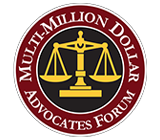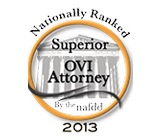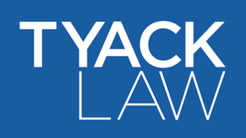
The Fourteenth Amendment to the United States Constitution gives the States all powers not expressly given to the federal government in the Constitution. Among those many state powers are law enforcement and protecting the health of persons in the State. It follows, then, that states—rather than the federal government—have the ultimate authority in imposing stay-at-home orders.
Under Ohio law, the Ohio Department of Health is “the ultimate authority” in responding to a public health crisis, with the department director signing and issuing the orders. Federal authority supersedes the state’s only when a public health emergency involves national defense or interstate commerce, or where the federal government has direct control, such as military bases. Historically, both Ohio and federal courts have shown their willingness to give broad emergency powers to government authorities in public health crises.
Ohio’s stay-at-home order was signed and issued on April 2, 2020 by Dr. Amy Acton, director of the Ohio Department of Health (ODH). It remains in effect until midnight on May 1, 2020 (unless rescinded or modified by the director). The director’s full 13-page amended order can be accessed here. The ODH also offers a Frequently Asked Questions page on its website, which include:
What activities are prohibited?
- All public and private gatherings of any number of people occurring outside a single household, or any gathering of more than 10 people, unless exempted by the order.
When are you permitted to leave your home?
- For health and safety reasons, such as emergency trips to the doctor or hospital.
- To obtain necessary supplies and services.
- For outdoor activities.
- For essential types of work exempted by the order.
- To take care of others.
What are the social distancing requirements?
- Maintaining at least six-foot social distancing from other individuals.
- Washing hands with soap and water for at least 20 seconds as frequently as possible or using hand sanitizer.
- Covering coughs or sneezes (into the sleeve or elbow, not hands).
- Regularly cleaning high-touch surfaces.
- Not shaking hands.
- Essential business should provide where possible signage or tape for customers waiting in line, hand sanitizer, separate operating hours for vulnerable populations, and online and remote access.
What is the penalty for violating the order?
- Violators can be found guilty of a misdemeanor of the second degree, which can include a fine of not more than $750 or not more than 90 days in jail, or both. Homeless people are exempt from the order.
Other Important Information
- On April 7, 2020, ODH and Center for Disease Control (CDC) recommended that all persons who are out in public wear cloth mask. This is because (1) aerosols—which are smaller droplets that can be emitted when people are breathing and talking—play some role in spreading the new coronavirus and (2) asymptomatic people who are, unbeknownst to them, infected with COVID-19 are capable of spreading coronavirus to others.
- As of April 15, 2020, passengers of the Central Ohio Transit Authority (COTA) buses are required to wear masks in order to ride on a COTA bus.
- Announced on April 20, 2020, all K-12 schools will remain closed for the 2019-2020 school year.
Disclaimer: The information in this blog post (“post”) is provided for general informational purposes only, and may not reflect the current law in your jurisdiction. No information contained in this post should be construed as legal advice from the Tyack Law Firm Co., L.P.A., or the individual author, nor is it intended to be a substitute for legal counsel or representation on any subject matter. No reader of this post should act or refrain from acting on the basis of any information included in, or accessible through, this post without seeking the appropriate legal or other professional advice on the particular facts and circumstances at issue from a lawyer licensed in the recipient’s state, country, county, or other appropriate licensing jurisdiction.
Talk with an experienced Lawyer today
Fill out the form to get started with your case evaluation.













